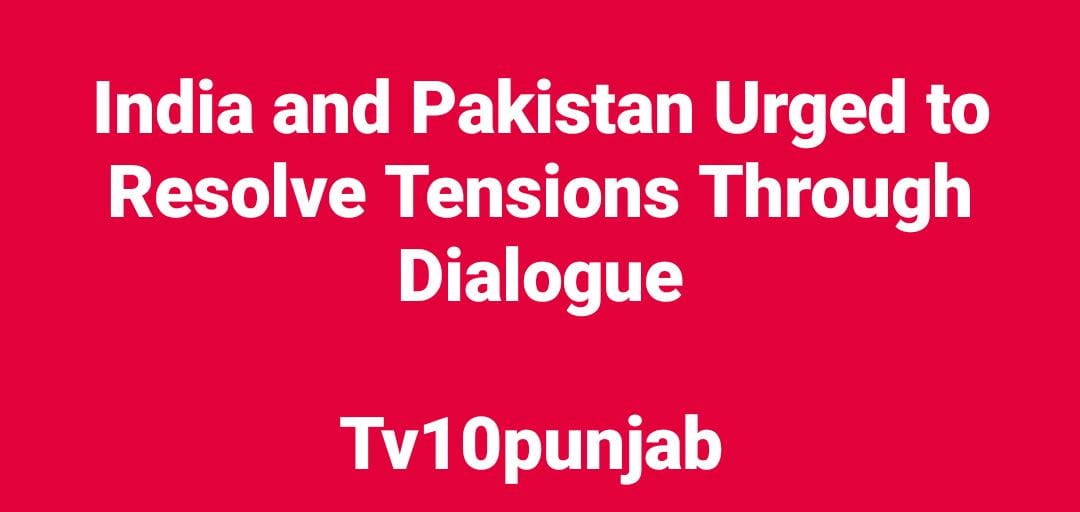National/ International Desk
11 May
Sandeep Dhand
Journalist and Research Analysist
In the wake of rising tensions between India and Pakistan, a strong call has been made for both countries to seek peaceful solutions through dialogue. The recent terrorist attack in Pahalgam, Jammu and Kashmir, which claimed the lives of 26 people, has led to increased conflict and military responses from both sides.
Following the Pahalgam attack, India conducted military operations against terrorist camps located across the border in Pakistan and Pakistan-occupied Kashmir (PoK). These operations caused a sharp escalation in tensions between the two nuclear-armed neighbors. Drone and missile attacks were reported over several days, raising fears of a broader conflict in the region.

Amidst these developments, senior officials from both countries have held talks with the hope of reducing the tensions. There has been a mutual understanding to immediately halt all forms of military action—by land, air, and sea—and to restore calm along the border. This agreement to cease hostilities shows a commitment to maintaining peace.
Efforts to promote peace are being supported by neighboring countries, with the view that stability in the region benefits all. It is believed that peace and dialogue are the only paths toward long-term solutions. The idea is not just to stop current hostilities but to aim for a broader, lasting ceasefire agreement.
Officials have expressed concern about the situation and emphasized the importance of direct talks between India and Pakistan. They highlighted that both countries must show restraint and act responsibly. Escalation of violence helps no one and could put millions of lives at risk.
The Pahalgam attack was condemned strongly. It was noted that such acts of terrorism harm innocent civilians and destabilize the region. There was a shared understanding that terrorism in any form must be opposed, and countries must work together to counter such threats.
Peace in Asia, especially in South Asia, is considered fragile and hard-earned. Both India and Pakistan are seen as crucial neighbors whose relationship affects the entire region. Therefore, maintaining peace between them is not only in their own interest but also in the interest of the wider global community.
It was also mentioned that India and Pakistan have deep-rooted differences, but these cannot be resolved through violence. Instead, both countries should engage in constructive conversations. It was stressed that such dialogue should be based on mutual respect and an understanding of each other’s concerns.
In conclusion, there is hope that the two nations will continue to communicate directly, avoid further military actions, and work together for a peaceful and stable future. The recent agreement to stop cross-border violence is a positive sign, and the world watches closely, hoping for lasting peace in the region.